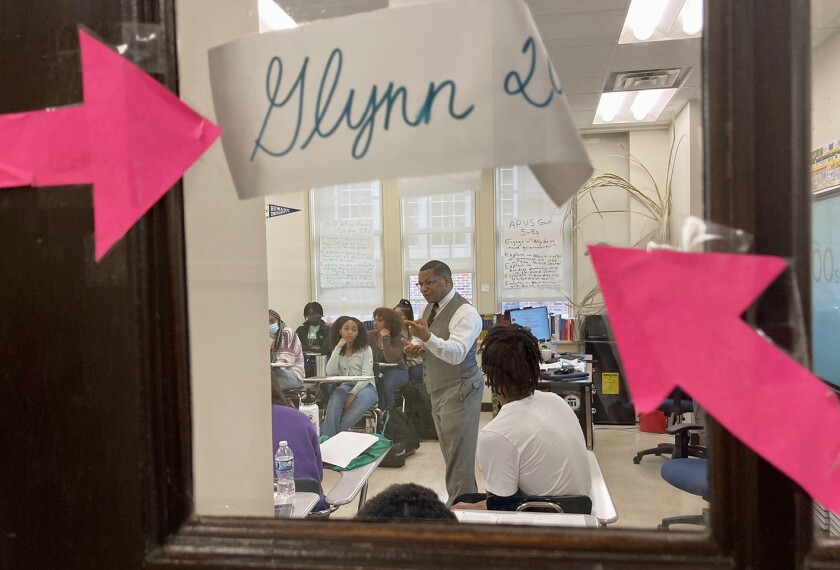The nonprofit group that runs Advanced Placement classes announced it will make changes to the framework of its new AP African American Studies course, though it has yet to reveal plans.
The April 24 announcement from the College Board comes months after a national debate swirled around the new course. Some scholars criticized the College Board for its exclusion of topics in the course framework, while some state leaders pledged to review the course, with Florida Gov. Ron DeSantis banning the course citing the inclusion of topics that violate state law restricting instruction on race.
“In embarking on this effort, access was our driving principle—both access to a discipline that has not been widely available to high school students, and access for as many of those students as possible,” the College Board said in a statement. “Regrettably, along the way those dual access goals have come into conflict.”
The AP African American Studies course framework was officially released on Feb. 1, the first day of Black History Month, with feedback provided by students and teachers from the first pilot year of the course, which ends this summer. According to the College Board, experts and scholars will work on changes to the existing framework during the second pilot round, which begins this fall. The official course is scheduled to be available for the 2024-25 school year.
“The updated framework, shaped by the development committee and subject matter experts from AP, will ensure that those students who do take this course will get the most holistic possible introduction to African American Studies,” the nonprofit said.
The College Board did not respond to Education Week’s requests for comment. It’s unclear why the organization is making changes and what changes it plans to make, nor what sparked this announcement.
The journey in developing this new AP course began in the 2000s with major work beginning in 2020. See more about this history in a timeline of events:
The course framework as published on Feb. 1 this year covers a lot of ground. Here’s just a sample of what the course currently explores:
State officials’ responses to the new course have varied. Here are just a few:
As a new round of schools and classrooms prepare to pilot the new course, hear from educators who have been teaching it in the first pilot round:










